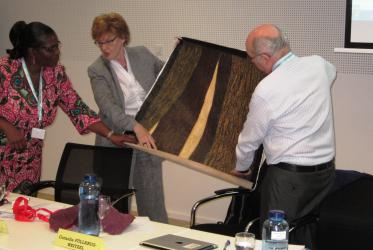Displaying 6821 - 6840 of 9260
Voices against violence at World Youth Day in Rio
29 July 2013
Faith leaders promote protection of displaced people
25 July 2013
Ecumenical Review gauges the movement’s direction
18 July 2013
Anglicans and Lutherans join hands in Ottawa
11 July 2013
Condolences over the death of Prakai Nontawasee
10 July 2013
Church leaders affirm Cuban religious reforms
09 July 2013








